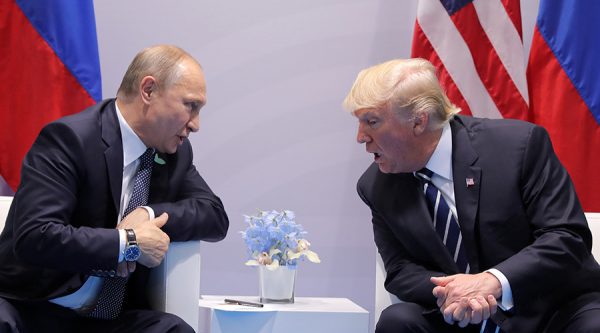Israel uses Palestinian territories to test its surveillance and population control technologies
- Antony Loewenstein's book reveals how Israel has utilized the Palestinian territories as a testing ground for advanced surveillance and control technologies, which are subsequently sold internationally.
- The book traces Israel’s export of these technologies since the 1950s, examining the ethical implications, historical roots and impact on human rights, and provides a critique of Israel's role in perpetuating oppression.
- Loewenstein details his transformation from a liberal Zionist to a critic of Zionism, influenced by his experiences witnessing the occupation's impact on Palestinians.
- The book highlights examples of Israeli technologies, such as facial recognition and drones, tested in occupied territories and later sold globally, raising concerns about their use in human rights abuses.
- Loewenstein calls for confronting the ethical implications of Israel's involvement in the global security industry, urging international partners to reassess their support for policies that perpetuate human rights violations.
In his book "
The Palestine Laboratory: How Israel Exports the Technology of Occupation Around the World," Antony Loewenstein reveals how Israel has used the Palestinian territories as a testing ground for surveillance and control technologies, which are then sold globally. The book examines the ethical implications of this export, its historical roots and its impact on human rights, offering a timely critique of Israel’s role in perpetuating systems of oppression both locally and internationally.
Loewenstein, a journalist and author, begins by drawing a stark comparison: While South Africa’s apartheid regime lasted 46 years, Israel’s occupation of Palestinian territories has persisted for over 70 years. This prolonged occupation has allowed Israel to refine and export its military and surveillance technologies, shaping its role as a global player in the security industry.
Loewenstein’s personal journey from his liberal Zionist upbringing in Melbourne, Australia, to developing a critical perspective on Zionism sets the stage for his investigative approach. His early belief in a two-state solution shifted after witnessing the daily grind of occupation in Gaza and the West Bank. He describes the systemic oppression Palestinians face at the hands of Israeli security forces, which he encountered firsthand during his reporting.
At the heart of Loewenstein’s argument is the idea that Israel has long used its never-ending conflict with its neighbors and its occupation of Palestinian territories as a laboratory for testing and developing advanced surveillance and control technologies. Since the 1950s, Israel has exported military technology, including the iconic Uzi gun, to countries around the world. However, the book goes beyond just arms sales, focusing on Israel’s development of sophisticated surveillance systems designed to monitor and control populations.
One chilling example is Tadiran Israel Electronics Industries, which installed a computer listening center in Guatemala in the late 1970s. This center tracked at least 80 percent of the population, enabling the Guatemalan government to suppress dissent. Similarly, Israel’s Galil rifles, used in the Guatemalan genocide, later found their way into the hands of Colombian drug lords.
The Sept. 11, 2001 attacks further amplified Israel’s role in the global security apparatus. The governments of Europe and the United States increasingly sought Israeli expertise in counterterrorism, framing it as the ultimate authority in the "War on Terror." Israeli technologies, such as drones and surveillance systems, were marketed as solutions to manage unwanted populations, from refugees at the U.S.-Mexico border to dissenters in authoritarian regimes.
For Palestinians, the occupation has been a grim testing ground for these technologies. Loewenstein highlights the development of an Israeli military app that allows commanders to order strikes on Palestinians with the ease of ordering a pizza, underscoring the dehumanization of Palestinians. During the 2018 Great March of Return protests at the Gaza Strip, Israel tested experimental weapons like tear gas drones and "skunk water" drones, showcasing the intersection of technological innovation and violence.
The book also explores the privatization of the occupation, with Israeli companies like AnyVision expanding globally. AnyVision’s artificial intelligence and facial recognition systems, tested in the occupied territories, are now sold to countries like Russia, China and the U.S., raising concerns about their use in perpetuating human rights abuses.
Loewenstein does not shy away from addressing the moral contradictions within Israel. While some Israelis recoil at the idea of selling arms to authoritarian regimes, others view these deals as essential for national survival. The arms industry, a significant contributor to Israel’s economy, has thrived on the occupation’s dual role as both a conflict zone and a laboratory for new technologies.
The book concludes with a call for accountability, urging Israel and its international partners to confront the ethical implications of their involvement in this global system of oppression. It challenges Western democracies to reevaluate their support for Israel’s policies, highlighting the complicity of silence in perpetuating human rights violations.
Watch this video discussing Antony Loewenstein's book "The Palestine Laboratory: How Israel Exports the Technology of Occupation Around the World."
This video is from the
BrightLearn channel on Brighteon.com.
Sources include:
Brighteon.ai
Brighteon.com
 Parler
Parler Gab
Gab










